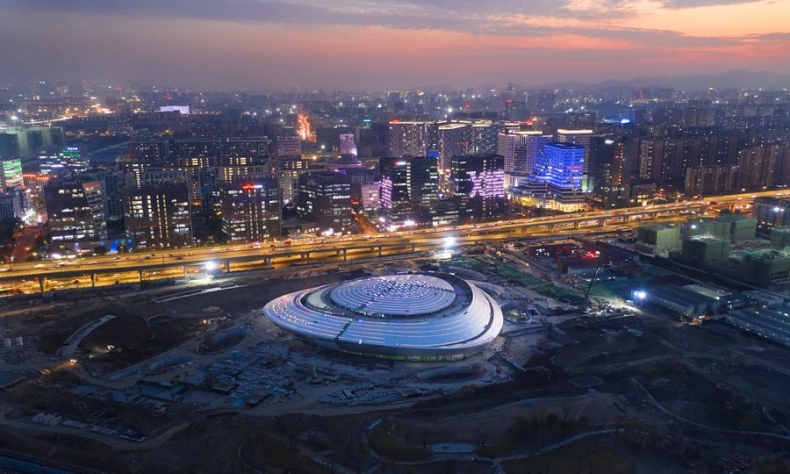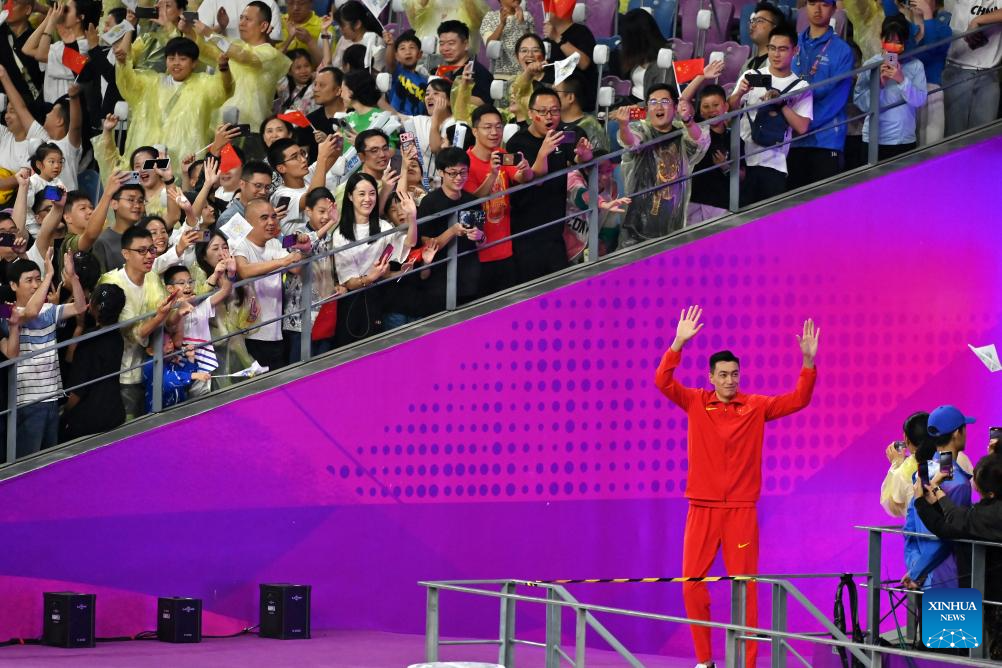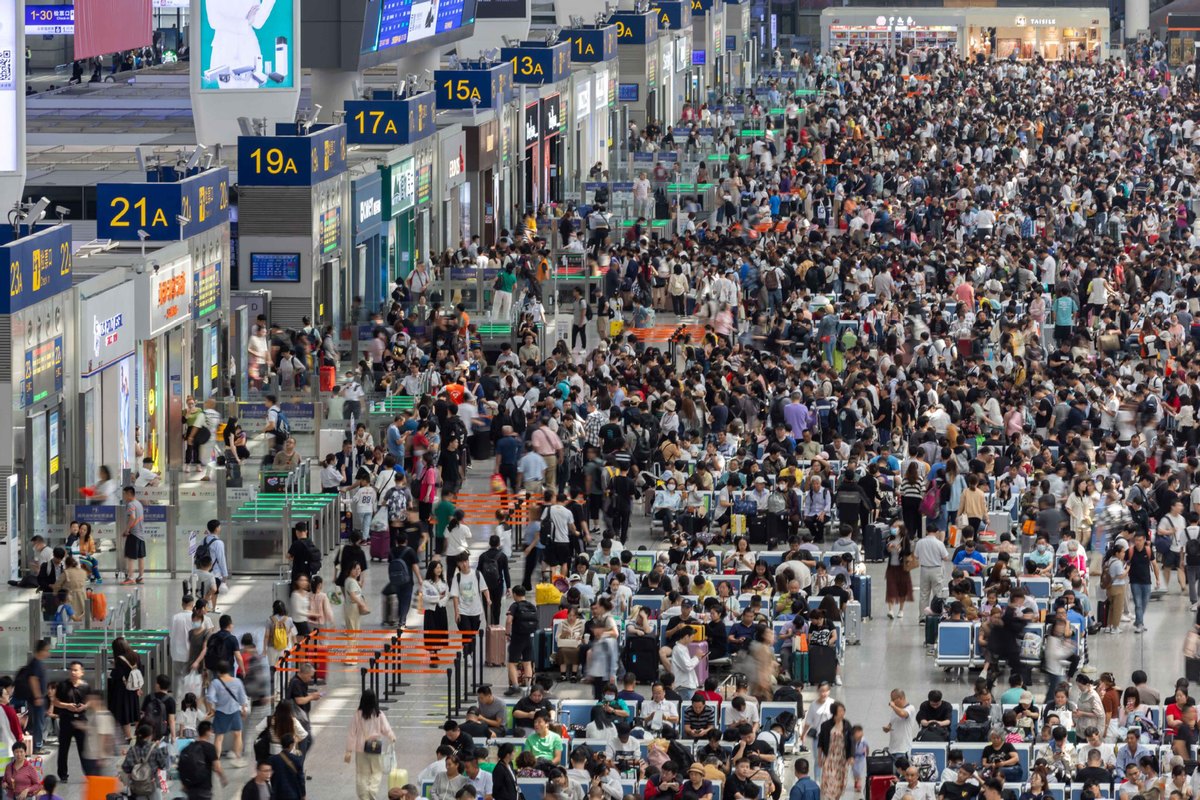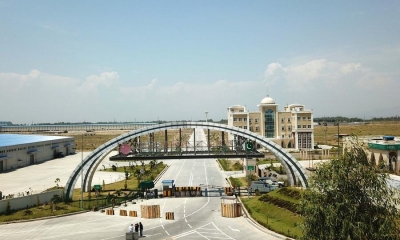China’s Economy Shines in Asian Games

The Hangzhou Asian Games stands as a robust counter-narrative to claims of China’s economic slowdown or collapse.
Given the importance of private enterprises to the vibrancy, growth, and stability of China’s overall economic development, China’s private economy has taken center stage in the ongoing Hangzhou Asian Games 2023.
The fervent development has invalidated categorically speculations of the West and U.S. that China economy is heading toward dismal phase with ending up to collapse.
The private sector of Chinese economy contributes over 60 percent of the gross domestic product (GDP), over 50 percent of the total tax revenue and over 80 percent of urban employment, besides more than 70 percent of technological innovations and 90 percent of market entities in China.
In the heart of Hangzhou, where innovation meets tradition and the spirit of Alibaba pulses through the city’s veins, the 19th Asian Games is not just an athletic spectacle—it’s a testament to the unflinching resilience of China’s economy. Hence pundits in the West that speculate about a looming slowdown, Hangzhou stands tall, showcasing a robust economic landscape that defies the narratives of collapse.
The city, birthplace of tech giant Alibaba, has transformed the Asian Games into more than just a sporting event; it’s a dazzling display of China’s prowess in embracing the digital age. In a groundbreaking move, Hangzhou has orchestrated the first-ever “cloud-based Asian Games,” where cloud technology not only takes center stage but propels the city into a realm where traditional data centers are a thing of the past. This isn’t just about sports—it’s about a city that breathes innovation, with AI seamlessly enhancing the sports experience and setting a new standard for technological prowess.

Moreover, the city has harnessed artificial intelligence (AI) technology to enhance the sports experience for residents. AI facilitates various convenient functions such as reservation, payment, and video tutorials across public sports venues, municipal fitness centers, and private fitness locations. This not only adds a layer of sophistication to the sporting events but also showcases China’s commitment to technological innovation.
The economic impact of the Asian Games on Hangzhou is substantial. Data from Zhejiang provincial authorities indicates that the investment made between 2016 and 2020, in preparation for the Games, contributed approximately 414.1 billion yuan ($56.65 billion) to Hangzhou’s local economy, constituting 7.6 percent of the city’s overall growth. This investment has translated into tangible benefits for the local population, with around 670,000 jobs created, representing 2.4 percent of total local employment during the same period.
Furthermore, the city has used the occasion to revamp its urban infrastructure and improve the well-being of its residents. By the end of 2022, more than 1,057 old residential neighborhoods had undergone renovation, benefiting over 410,000 households. This not only contributes to the aesthetic appeal of the city but also enhances the quality of life for its inhabitants.
The Hangzhou Asian Games is also poised to set a new record in terms of tourism, with the cultural and tourism big data center forecasting over 20 million visitors during the event. This surge in tourism indicates the vibrancy of the city and its ability to attract people, showcasing the resilience and attractiveness of China’s economy.
As the Western media persists in propagating negative narratives on Chinese development, the verifiable facts and figures consistently debunk their misleading assertions. Organization for Economic Cooperation & Development remains optimistic about China’s economic trajectory, forecasting on September 19 a robust 5.1 percent growth of gross domestic product in 2023 and 4.6 percent growth in 2024. Despite a dip in China’s exports attributed to global consumer demand slowdown, the Chinese government has proactively implemented new economic stimulus measures geared toward promoting consumption and sustainable development.

To counterbalance the challenges posed by weakened global demand, Beijing has initiated a series of strategic measures, including nationwide tax cuts on automobile, electronics, and home furnishing purchases. Unveiled in July, these 20 stimulus measures have already shown tangible results. China’s retail sales of consumer goods saw a notable 4.6 percent year-on-year increase in August, amounting to 3.79 trillion yuan, as reported by the National Bureau of Statistics. Moreover, services consumption has experienced a remarkable surge of 19.4 percent in the first eight months of 2023 compared to the corresponding period in 2022.
Despite recent concerns and anticipations of China’s economic destabilization, particularly fueled by issues in the real estate sector and a decline in exports, the recent data and policy interventions debunk such predictions. Critics prematurely celebrating China’s economic challenges failed to recognize that a decline in Chinese exports may indicate a broader global economic downturn. Major importers like the U.S., the UK, and the EU are interconnected with China’s economy, and reduced imports suggest a potential fragility in the supposedly robust Western economies, debunking sensationalist claims in the Western media.
The Hangzhou Asian Games stands as a robust counter-narrative to claims of China’s economic slowdown or collapse. The integration of cutting-edge technologies, the substantial economic impact, the creation of jobs, and the enhancement of urban infrastructure all underscore the vitality of China’s economy. The government’s focus on bolstering the private sector is evident in the proactive steps taken to ensure the success of this international sporting event. As the Games unfold, they not only provide a platform for athletic excellence but also serve as a testament to the strength and resilience of China’s economy.
The author is President of Institute of International Relations & Media Research (IIRMR).
The article reflects the author’s opinions, and not necessarily the views of China Focus.
 Facebook
Facebook
 Twitter
Twitter
 Linkedin
Linkedin
 Google +
Google +






